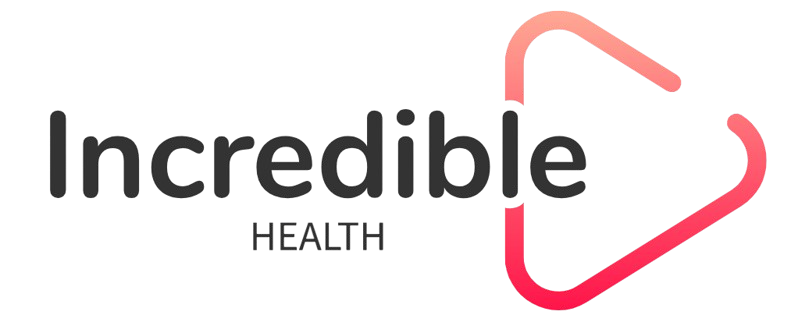How to Track Your Health Goals
Setting health goals is an essential part of maintaining a healthy lifestyle. Whether you want to lose weight, improve your fitness level, or simply adopt healthier habits, tracking your progress is key to achieving success. In this comprehensive guide, we will explore the best practices for tracking your health goals effectively. From understanding the importance of tracking to utilizing the right tools and techniques, this article will provide you with all the information you need to stay on track.
Why Track Your Health Goals?

Before diving into the specifics of how to track your health goals, let’s first understand why tracking is so crucial. Tracking your progress provides several benefits that can significantly impact your journey towards better health. By monitoring your efforts and results, you can:
- Stay motivated and accountable
- Identify patterns and trends
- Adjust your strategies as needed
- Celebrate your achievements
Without tracking, it can be challenging to assess whether your current approach is working or if you need to make changes. By keeping tabs on your health goals, you can make informed decisions and stay focused on your objectives.
Setting SMART Goals

Before you can effectively track your health goals, it’s essential to establish clear and specific objectives. One popular framework for goal setting is the SMART criteria, which stands for Specific, Measurable, Achievable, Relevant, and Time-bound. By following these guidelines, you can create goals that are:
- Specific: Clearly define what you want to achieve.
- Measurable: Establish metrics to track your progress.
- Achievable: Set realistic goals that you can reach.
- Relevant: Ensure that your goals align with your overall objectives.
- Time-bound: Specify a timeframe for achieving your goals.
By setting SMART goals, you provide yourself with a roadmap for success and make it easier to track your progress effectively. For example, instead of setting a vague goal like “lose weight,” you could set a SMART goal like “Lose 10 pounds in 3 months by exercising 4 times a week and following a healthy diet plan.”
Choosing the Right Tracking Methods

Once you have established your health goals, the next step is to choose the right tracking methods to monitor your progress. There are various tools and techniques available that can help you track different aspects of your health journey:
1. Food and Nutrition Tracking
Tracking your food intake is essential for maintaining a healthy diet and achieving weight-related goals. Apps like MyFitnessPal, Lose It!, and Cronometer allow you to log your meals, track your calorie intake, and monitor your macronutrient consumption. By keeping a food diary, you can gain insights into your eating habits and make informed decisions about your nutrition.
2. Exercise and Fitness Tracking
Monitoring your physical activity is key to reaching your fitness goals. Fitness trackers like Fitbit, Garmin, and Apple Watch can help you track your steps, distance, calories burned, and even your sleep patterns. Additionally, apps like Strava, Runkeeper, and Nike Training Club offer workout tracking features that allow you to record your exercise sessions and progress over time.
3. Health Metrics Tracking
Tracking various health metrics, such as body weight, body fat percentage, blood pressure, and blood sugar levels, can provide valuable insights into your overall health. Smart scales, blood pressure monitors, and glucose meters enable you to track these metrics regularly and detect any changes or trends that may require attention.
4. Habit Tracking
Building healthy habits is essential for long-term success in achieving your health goals. Habit-tracking apps like Habitica, Streaks, and HabitBull help you establish and maintain positive habits by allowing you to track your daily routines and activities. By monitoring your habits, you can stay on track and make consistent progress towards your goals.
Utilizing Technology for Tracking

In the digital age, technology plays a significant role in tracking health goals. From wearable devices to smartphone apps, there are countless tools available to help you monitor and manage your health and fitness. Here are some ways you can leverage technology for tracking:
1. Wearable Devices
Wearable devices like fitness trackers and smartwatches are popular tools for tracking physical activity, sleep patterns, heart rate, and more. These devices provide real-time data that can help you stay motivated and make informed decisions about your health. Whether you’re walking, running, cycling, or swimming, wearable devices can track your movements and provide valuable insights into your overall fitness level.
2. Mobile Apps
Mobile apps offer a convenient way to track various aspects of your health and wellness. Whether you’re monitoring your food intake, tracking your workouts, or recording your sleep patterns, there’s an app for almost everything. Many apps also offer features like goal setting, progress tracking, and personalized recommendations to help you stay on track and achieve your health goals.
3. Online Platforms
Online platforms like MyFitnessPal, Fitbit, and Strava provide comprehensive tools for tracking your health and fitness goals. These platforms allow you to sync data from multiple sources, set personalized goals, and connect with a community of like-minded individuals for support and motivation. By utilizing online platforms, you can access a wealth of resources to help you stay accountable and reach your goals.
Tracking Your Progress Effectively
While tracking your health goals is essential, it’s equally important to do so effectively to maximize your results. Here are some tips for tracking your progress efficiently:
1. Set Regular Check-Ins
Establish a routine for checking in on your progress to stay accountable and motivated. Whether you set weekly, bi-weekly, or monthly check-ins, having regular milestones to assess your progress can help you stay on track and make adjustments as needed.
2. Keep Detailed Records
Record as much information as possible about your health journey, including your workouts, meals, measurements, and any other relevant data. By maintaining detailed records, you can track trends, identify patterns, and make informed decisions about your health goals.
3. Celebrate Small Wins
Don’t wait until you reach your ultimate goal to celebrate your achievements. Acknowledge and celebrate small wins along the way to stay motivated and inspired. Whether you hit a new personal record in the gym, lose a few pounds, or consistently meet your daily step goal, every accomplishment is worth recognizing.
4. Adjust Your Strategies
If you’re not seeing the progress you want, don’t be afraid to adjust your strategies and approach. Whether it’s tweaking your workout routine, modifying your meal plan, or seeking support from a health professional, being flexible and willing to make changes can help you overcome obstacles and reach your health goals.
Expert Opinions
According to Dr. Jessica Smith, a certified nutritionist and fitness expert, tracking your health goals is a powerful tool for success. She emphasizes the importance of setting clear goals, monitoring your progress, and staying consistent with your tracking efforts. Dr. Smith recommends using a combination of technology and old-fashioned pen and paper to track your health goals effectively.
Common Misconceptions
One common misconception about tracking health goals is that it’s only necessary for weight-related objectives. In reality, tracking can benefit all aspects of your health, including fitness, nutrition, sleep, and overall well-being. By monitoring various elements of your health, you can gain a holistic view of your progress and make informed decisions about your wellness.
Conclusion
To wrap things up, tracking your health goals is a valuable practice that can help you achieve success in your health and wellness journey. By setting SMART goals, choosing the right tracking methods, utilizing technology, and tracking your progress effectively, you can stay on track and reach your objectives. Remember to celebrate your achievements, stay accountable, and adjust your strategies as needed to maintain momentum and achieve lasting results. Start tracking your health goals today and take the first step towards a healthier, happier you!




